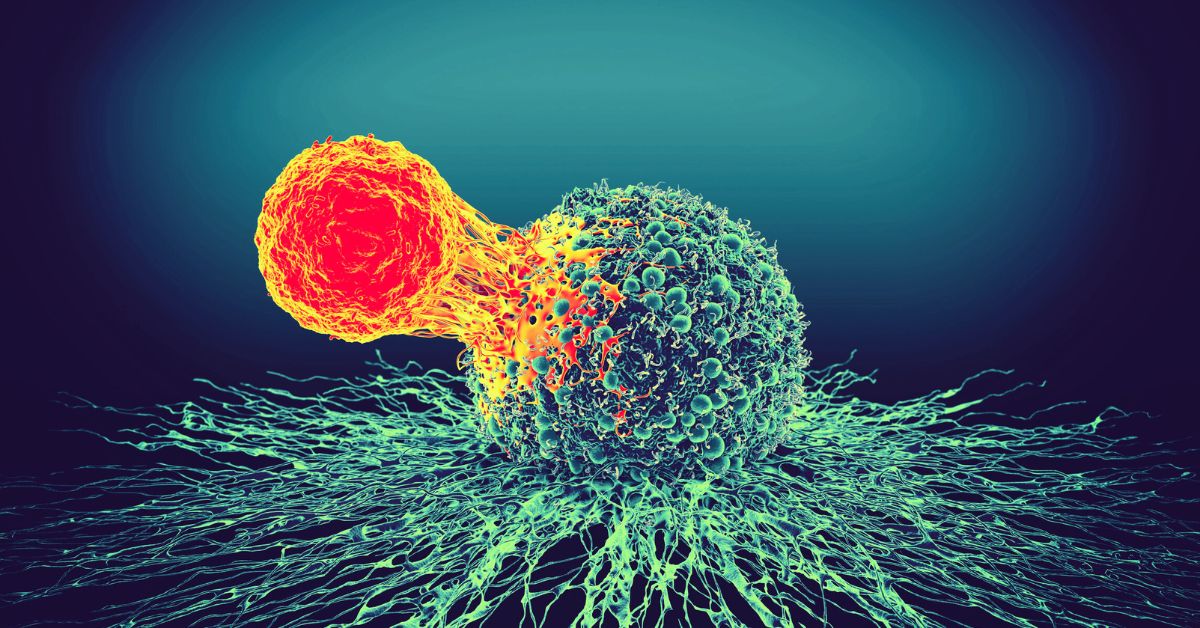We congratulate Dr Nicola Principe on her latest publication in the Journal for ImmunoTherapy of Cancer. This work, under the supervision of Dr Jonathan Chee, represents a collaborative effort involving past and present NCARD researchers as well as longstanding partners, including Professor Anna Nowak, Amber-Lee Phung, Dr Kofi Stevens, Associate Professor Joost Lesterhuis, Dr Scott Fisher, Dr Joel Kidman, Dr Lizeth Orozco, Dr Alison McDonnell, Dr Caitlin Tilsed, Dr Omar Elaskalani, Dr Ben Wylie, Fezaan Sheikh, and Dr Elly Marcq.
The study addresses a key question in cancer treatment: How can we make existing therapies work better together? Currently, many cancer patients receive a combination of chemotherapy and immunotherapy. Immunotherapy drugs (called checkpoint inhibitors) work to ‘release the brakes’ on the immune system, allowing it to better recognise and attack cancer cells. While these combinations can be effective, there is still room for improvement.
The team’s research uncovered that some chemotherapy drugs increase the number of specific immune cells (called progenitor exhausted T cells or TPEX) within tumours. These TPEX cells are crucial for successful immunotherapy, and increasing TPEX numbers may improve treatment outcomes. However, chemotherapy also causes these cells to display more ‘brake signals’, particularly one called LAG-3.
Building on these insights, the team tested a three-part combination treatment: chemotherapy with two checkpoint inhibitors targeting LAG-3 and another brake signal, PD-1. This combination was highly effective in laboratory models of mesothelioma and colon cancer, with some cases showing complete tumour regression. Importantly, all three components were necessary to achieve the best results.
The study’s findings indicate a promising new direction for cancer treatment, suggesting that monitoring how chemotherapy changes the immune environment within tumours could help doctors make more effective choices about immunotherapy drugs for combination treatments. This could be particularly important for hard-to-treat cancers like mesothelioma, where innovative approaches are urgently needed.
Congratulations to Dr Principe, Dr Chee, and the entire team on this significant contribution to cancer immunotherapy. This work exemplifies NCARD’s commitment to improving outcomes for cancer patients through pioneering research.


